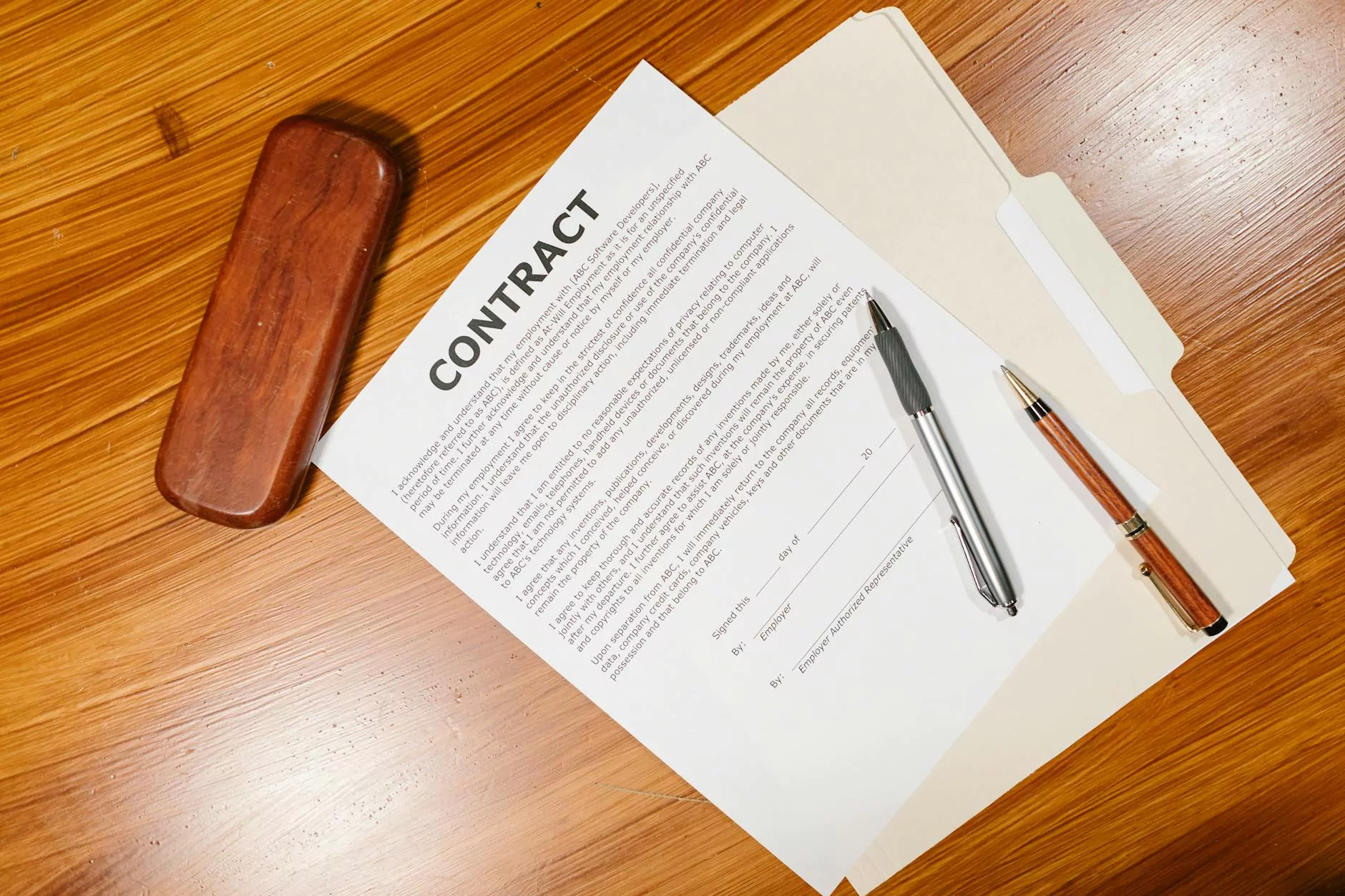Resolving A Partnership Dispute: Requesting An Accounting

Welcome to Baytowne Reporting's comprehensive guide on resolving a partnership dispute by requesting an accounting. In the world of business, partnerships can be a powerful and efficient way to achieve success. However, conflicts and disputes can arise, potentially jeopardizing the partnership and its stakeholders. The process of requesting an accounting is an important step towards resolving such disputes, enabling an accurate and transparent assessment of the partnership's financial affairs.
The Importance of Resolving Partnership Disputes
Partnership disputes can have far-reaching consequences, not only for the individuals directly involved but also for the overall business operations and its reputation. By promptly addressing and resolving partnership disputes, businesses can minimize disruptions, protect their assets, and maintain healthy and productive working relationships.
Understanding the Partnership Accounting Process
The partnership accounting process involves the systematic recording, classifying, and reporting of financial transactions within the partnership. It provides an accurate picture of the partnership's financial health and enables partners to make informed decisions and evaluate their respective interests.
1. Initiating the Partnership Dispute Resolution
When a dispute emerges within a partnership, it is crucial to act swiftly and initiate the resolution process. This typically involves consulting legal counsel with expertise in partnership disputes, who can guide you through the intricacies of partnership law.
2. Gathering Relevant Partnership Documents
In order to request an accounting, it is important to gather all relevant partnership documents, including the partnership agreement, financial statements, tax returns, and any amendments or modifications made over time. These documents will serve as a foundation for the subsequent steps in resolving the dispute.
3. Clearly Define the Dispute and Objectives
Before requesting an accounting, it is crucial to clearly define the nature of the dispute and establish the specific objectives you aim to achieve. This will help streamline the process and ensure that the requested accounting addresses the relevant issues effectively.
4. Drafting and Submitting the Request
The next step involves drafting a formal request for an accounting, detailing the specific financial information you seek. The request should be presented in a clear and concise manner, highlighting the relevance to the partnership dispute. It is advisable to seek the assistance of legal experts to ensure the request is comprehensive and legally sound.
5. Reviewing the Accounting Statements
Once the accounting statements are provided, it is essential to thoroughly review them in order to identify any discrepancies or areas of concern. Legal counsel can assist in analyzing the accounting statements, interpreting complex financial data, and advising on potential legal actions based on the findings.
6. Negotiating and Mediating
If discrepancies or disputes are discovered during the review process, it is often beneficial to consider negotiation or mediation as a means of resolving the issues amicably. The objective here is to reach a mutually satisfactory agreement that addresses the concerns of all parties involved.
7. Escalation to Arbitration or Litigation
In cases where negotiation and mediation fail to yield satisfactory results, it may be necessary to escalate the dispute to arbitration or litigation. This step should be taken with careful consideration, as it can be time-consuming, costly, and may strain the relationship between the partners.
Expert Tips on Resolving Partnership Disputes
Resolving a partnership dispute can be complex and emotionally challenging. Here are some expert tips to help you navigate through the process successfully:
1. Communication and Collaboration
Open and effective communication between partners is crucial throughout the dispute resolution process. Focus on establishing a collaborative environment, where all parties can voice their concerns and work towards finding a solution together.
2. Seek Professional Counsel
Engaging skilled legal professionals with expertise in partnership disputes can provide invaluable guidance and support. They can help you understand your rights, navigate the legal system, and ensure that your interests are properly represented.
3. Document Everything
Keeping accurate records of all communications, agreements, and transactions related to the dispute is essential. These documents can serve as evidence, protect your rights, and provide valuable insights during the resolution process.
4. Explore Alternative Dispute Resolution Methods
Consider alternative dispute resolution methods, such as mediation or arbitration, to help facilitate constructive dialogues and minimize the adversarial nature of traditional litigation. These methods can often lead to faster, cost-effective resolutions.
5. Focus on the Long-Term Partnership
Remember that the ultimate goal is to resolve the dispute while preserving the long-term viability of the partnership. Focus on finding fair and mutually beneficial solutions that will allow the partnership to continue and thrive.
Conclusion
Resolving a partnership dispute through the process of requesting an accounting is a critical step towards reestablishing trust, transparency, and a healthy partnership environment. By following the recommended steps and seeking professional advice, Baytowne Reporting believes that partners can effectively address disputes, protect their interests, and maintain the integrity of their partnership.
At Baytowne Reporting, we are committed to providing comprehensive resources and expert advice to help businesses navigate legal complexities. Contact us today to learn more about partnership dispute resolution and how our services can benefit your business.




